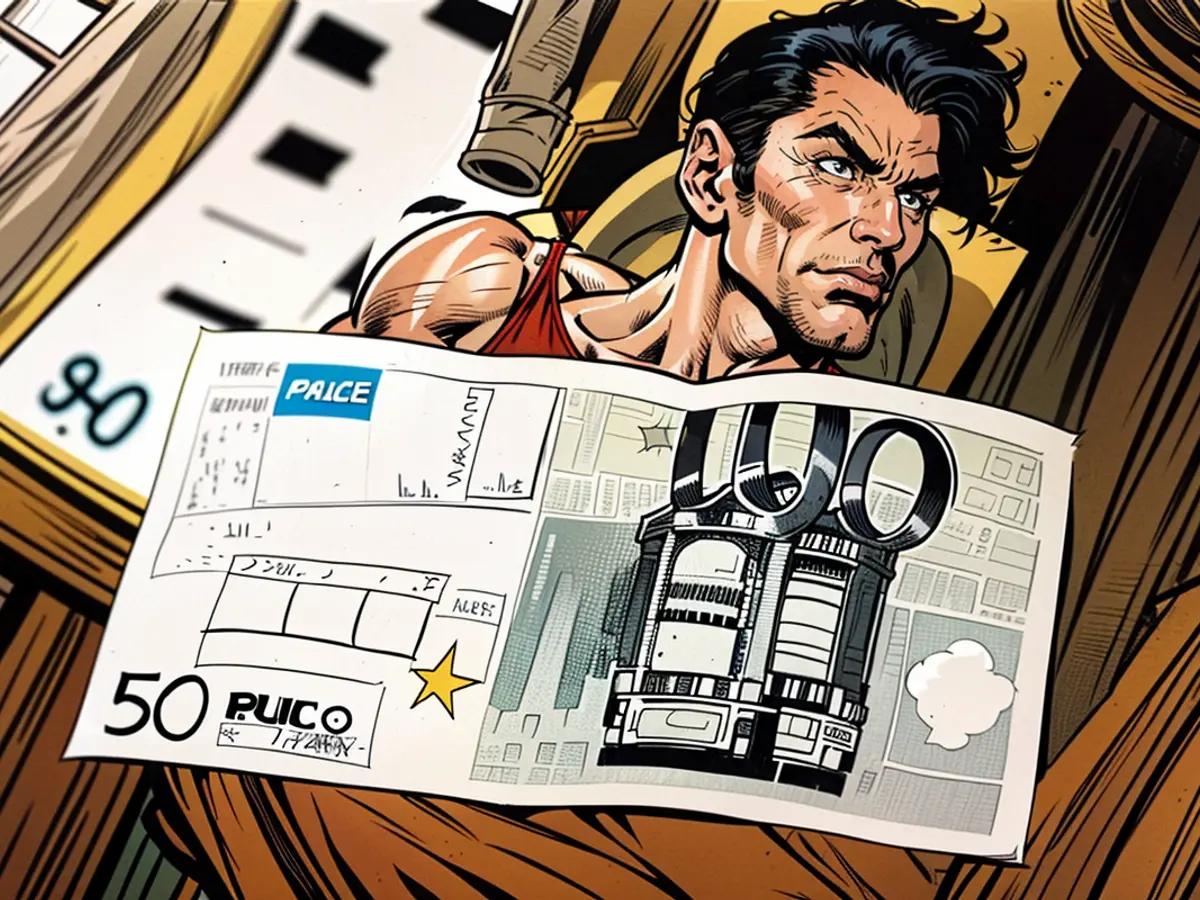More counterfeit money in circulation - especially 'counterfeit hundreds'
For the past seven years, fewer counterfeit banknotes have been counted than in the past few months. The number of flowers has significantly increased in comparison to the previous year.
According to the German Federal Bank, more counterfeit banknotes have been detected in the first half of the year than in the past seven years. In the first six months of the year, there were reportedly 38,578 banknotes with a face value of 2.4 million Euro. This was the highest half-yearly figure since 2017, with 39,685 banknotes and a 29% increase compared to the second half of 2023.
However, the damage caused has only increased by about 5%, as criminals predominantly produced smaller counterfeits. Counterfeit 50-dollar bills were the most common in circulation, accounting for 37% of all counterfeits, followed by 20-dollar bills (30%) and counterfeit hundreds (15%). Even counterfeit 10-Euro bills appeared more frequently than in the previous half-year, but they only accounted for 7% of the total number of banknotes.
The number of 200- and 500-Euro counterfeits, on the other hand, decreased significantly compared to the previous half-year, according to Federal Bank Board Member Burkhard Balz. They now account for only a tenth of the total number of counterfeits recovered. The 500-Euro banknote has not been reprinted since 2019 but remains a legal tender. Balz stated: "Overall, the amount of counterfeit money remains low: In theory, nine counterfeit banknotes affect 10,000 residents."
From the Used Car Dealer's Trick
A popular scam among criminals is the unnoticed exchange of real for counterfeit money, as reported by the Federal Bank. An interested buyer learned this the hard way when he tried to buy a used car in cash. The supposed seller first checked the genuine money, but then suddenly cancelled the deal. It was only at home that the buyer discovered his banknotes had been exchanged for counterfeits.
A more bizarre incident occurred in a Telegram chat group, where a member asked if and how they could double their money. Shortly thereafter, a supposed helper offered to exchange 8,200 Euro in real money for counterfeit bills worth 16,400 Euro.
Counterfeit money is not replaced. Anyone who accepts it assumes the risk. The Federal Bank strongly advises against trying to pass counterfeit money on to someone else, as this is a criminal offense. Instead, the flowers should be reported to the Federal Bank or the police.
Counterfeit Coins twice as common
Counterfeit coins are almost as common as counterfeit banknotes. The Federal Bank has recorded an increase of 19% to nearly 80,000 counterfeit coins. 94% of these counterfeits involve the largest coin with a value of 2 Euro.
The European Central Bank is already working on the next generation of Euro notes, which were first issued in 2002. In the redesign of the notes, Europeans were given the opportunity to participate: In surveys last year, Europeans favored themes from European culture, rivers, and birds as motifs.
Until people hold the new notes in their hands, however, several years will still pass. By the end of 2024, a consultant group is expected to propose motifs for the selected themes. Following this, a design competition will take place. The citizens will then be asked for their opinion again. The European Central Bank is likely to make the final decision regarding the design and production and release of the new banknotes around 2026. Based on experience, it is estimated that it will then take another 2-3 years for the new notes to enter circulation.
The surge in counterfeit banknotes has raised concerns at the Federal Bank, with a 39,685-increase in the first half of 2023 compared to 2017, despite fewer counterfeits being detected in recent years. This trend is concerning for the economy, as accepting counterfeit money comes with significant risks and is a criminal offense.








